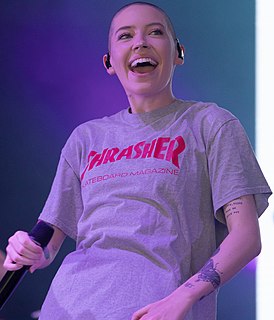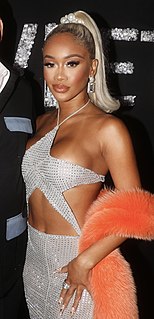A Quote by Bishop Briggs
Related Quotes
When I devoted myself to poetry - and poetry is a very serious medium - I don't think the people that knew me as an individual with that tongue-in-cheek kind of humor...well, it didn't always lend itself to my poetry. When you're writing poetry, it's like working with gold, you can't waste anything. You have to be very economical with each word you're going to select. But when you're writing fiction, you can just go on and on; you can be more playful. My editor's main task is to cut back, not ask for more.
I don't think I ever had a morning where I woke up and said I'm going to be a professional poet. I know I've always loved poetry, I've always loved writing poetry and I've always loved sharing poetry. I've also always known that I wanted that to somehow be a very large part of my life and I'm very fortunate that it's such a large part of my life.
Faced with today's problems and disappointments , many people will try to escape from their responsibility. Escape in selfishness, escape in sexual pleasure, escape in drugs, escape in violence, escape in indifference and cynical attitudes. I propose to you the option of love, which is the opposite of escape.
People have a very limited idea of what being creative is - playing the guitar or the flute or writing poetry - so people go on writing rubbish in the name of poetry. You have to find out what you can do and what you cannot do. Everybody cannot do everything. You have to search and find your destiny. You have to grope in the dark, I know. It is not very clear-cut what your destiny is, but that's how life is. And it is good that one has to search for it - in the very search, something grows.




































